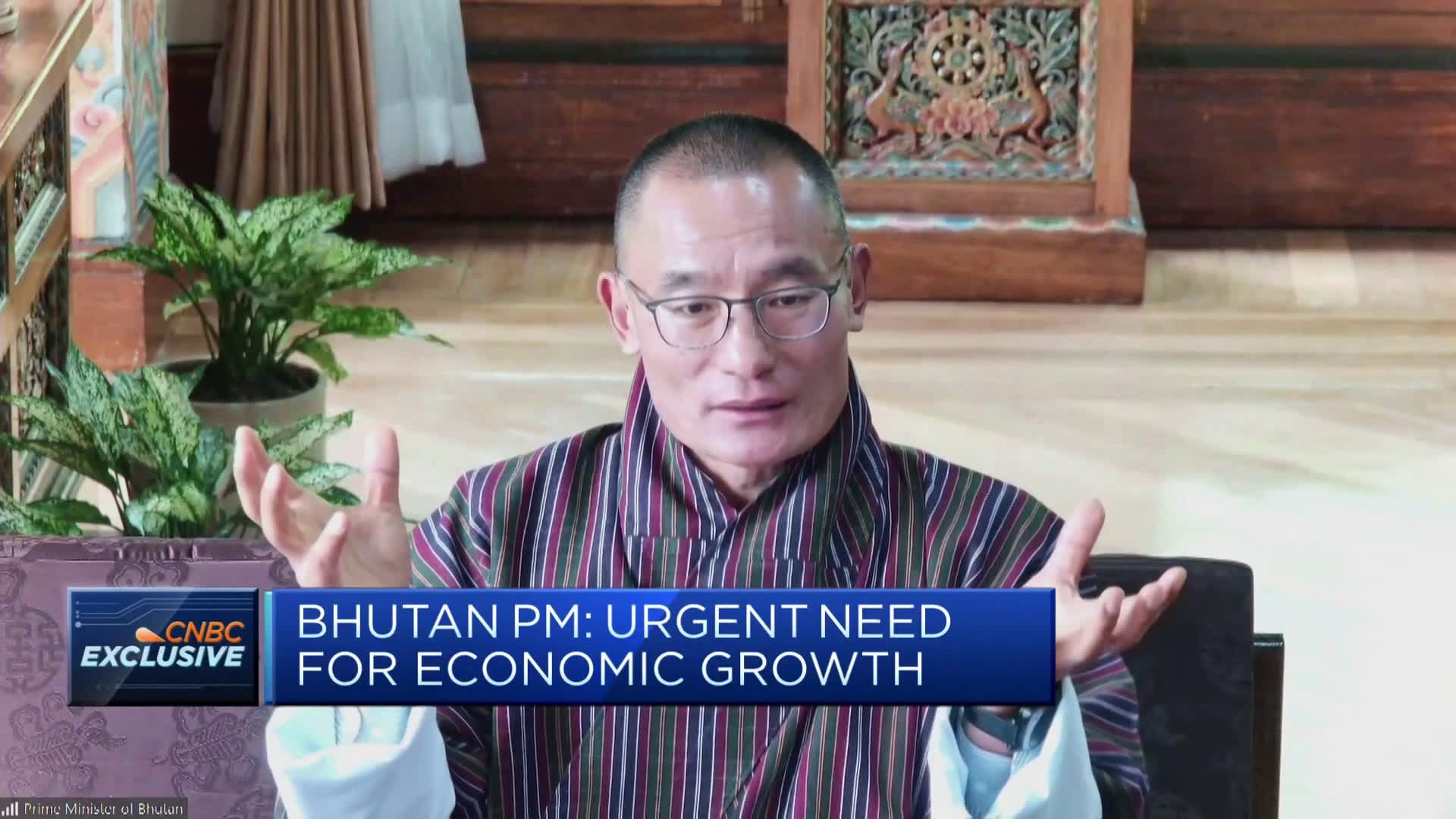Bhutan’s governing philosophy of “Gross National Happiness” has been heralded the world over for balancing economic growth with the well-being of its citizens.
But recent discussions of “Gross National Happiness 2.0” by its newly elected Prime Minister Tshering Tobgay suggest that change on some level is underway as the country struggles with an economic crisis that’s left it — as Tobgay has said— “teetering on the brink of collapse.”
GNH, as it’s known, has been the guiding principle of Bhutan since it was introduced by the former king Jigme Singye Wangchuck in the early 1970s.
But with youth unemployment rates of nearly 30% and about one in eight people living in poverty, has Bhutan reached a point where its quest for national happiness must change?
“Yes and no,” Tobgay told CNBC in an interview on May 10. “Yes, because we’ve got to grow our economy.”

But the tenets of GNH will not be abandoned, he added.
“Should we throw caution to the wind? No. We can grow, and we can grow in a manner that is balanced.”
Finding a new equilibrium
Bhutan will continue to strengthen its economy in ways that are sustainable, equitable and “balanced with social progress, environmental protection, cultural protection and good governance,” he said.
“In these areas we have succeeded, like nobody could have imagined,” he said.
We have failed economically.
Tshering Tobgay
Prime minister of Bhutan
But he also signaled that the principle applied in the past may have been too one-sided.
“We’ve been extremely cautious, very conservative, so we have lagged,” he said. “Looked at one way we have not really failed. But seen from the successes of the social progress area, we have failed economically.”
Tobgay also said that Bhutan has been similarly guarded in its approach to tourism.
“We’ve been extremely cautious in how we have opened ourselves to the rest of the world as far as tourism is concerned,” Tobgay told CNBC. “We’ve been very conservative, very cautious.”
If Bhutan erred, it was on the side of sustainability and conservation, he added.
“We are paying for caution right now.”
Doubling down on sustainable tourism
Bhutan’s tourism industry is recovering slower than other countries in Asia. In 2023, international arrivals in the country were a third of 2019 levels.
The country has changed its controversial “Sustainable Development Fee” three times since it reopened in September of 2022 — first increasing it to $200 per adult per day, then lowering it twice.
Those changes created “a lot of confusion,” said Tobgay. “Even as we speak, tourism is now beginning to pick up, but not to pre-pandemic levels.”
Yet despite the economic windfall that mass tourism can bring, Bhutan is not retreating from its “high value, low volume” approach to tourism, Tobgay told CNBC.
Today, its Sustainable Development Fee is $100 per adult per day, but Tobgay said, “Truth be told, I think $200 per day as a sustainable development fee many tourists are willing to pay.”
He said Bhutan is still focused on increasing tourism “while at the same time controlling the numbers.”
The country’s burgeoning tourism industry is one avenue to “generate the type of jobs that our able, our very capable youth aspire for,” he said.
Thousands of young Bhutanese workers have left the country in search of employment opportunities abroad, according to Reuters. In the 11 months preceding May 2023, some 1.5% of Bhutan’s population moved to Australia alone for jobs and skills training, the report said.
“We hope that this is a temporary development … and will give us time to strengthen our economy, through tourism, but through other interventions as well,” said Tobgay. “Then our children will remain here, those who are working outside, who would have gained valuable experience, would return back home.”
This article was originally published on CNBC

